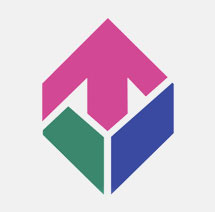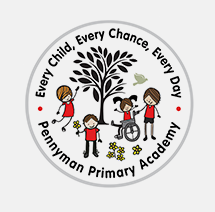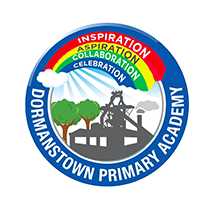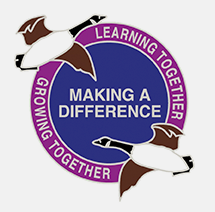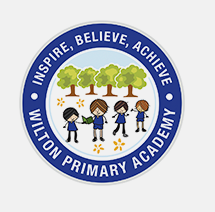Discovery Curriculum
The curriculum at Discovery offers a stimulating, nurturing and safe environment in which pupils can develop socially, emotionally, physically and intellectually. It is focused on ensuring that pupils are effective communicators, supporting their learning with objects of reference, Makaton, visual cues and communication aids.
The academy aims to help every child develop as successful, happy and independent learners by:
- providing a broad and balanced curriculum;
- providing a safe, caring and stimulating learning environment, with a variety of educational experiences, that increases the range of pupils’ educational achievements;
- providing a personalised approach to learning that caters for all needs and learning styles;
- ensuring a flexible approach to curriculum planning underpinned by the academy curriculum pathways as well as developmental and sensory curriculum foundations;
- developing a learning journey based on personal outcomes and intentions drawn from a range of sources and expertise to ensure progression for each pupil according to their needs;
- using a wide range of academic and therapeutic areas, both inside and outside, and a range of state-of-the-art resources that support learning and emotional wellbeing; and
- promoting equal opportunities and providing access to all areas of the curriculum.
Curriculum provision and delivery
Curriculum provision at Discovery is dependent on the needs of the child. Our philosophy is that all pupils can make great progress and that they can take control of their own learning when provision is tailored to suit need and ability. We have high expectations of every child academically, physically and therapeutically.
Within the Discovery curriculum, we ensure that new knowledge and skills build on what has been taught before. Careful selection and sequencing of the curriculum for individual children means focusing on the most important aspects for a child with complex SEND to learn through a personalised pathway, as well as deciding the best way to teach this. Therefore, we do not prescribe to one specific delivery approach or pedagogy, as what works for one child may not work for another. This means that we draw on a variety of pedagogies, including traditional teaching methods for those pupils who are able to access subject specific learning. There is a deliberate use of repetition, over learning, planned transfer of skills and knowledge as well as the teaching of generalisation. This allows a holistic approach centred on personalised learning.
This, alongside an embedded approach to therapies and a focus on social and emotional development, supports children to build up knowledge and skills over time to develop fluency, so that by the time they leave to begin their secondary education journey, they know more, can do more and remember more.
EYFS
In EYFS, the core academic curriculum is based on the early year’s foundation stage profile. This curriculum begins at 0 years and therefore all pupils joining the academy in reception are able to access this.
The EYFS curriculum follows the principles of play based, multi-sensory and exploratory learning. Activities in each area are informed by both baseline and continuous assessment and purposefully designed to teach the foundation skills needed to progress.
As well as the EYFS curriculum, learning intentions may be taken from a range of therapeutic sources including but not limited to, sensory integration, speech and language, BLAST and physiotherapy.
Informal
The informal curriculum is entirely personalised to need. Knowledge is taught through a continuum of skills development as set out in the MAPP approach. Key areas of knowledge are repeated and revisited. In this way, repetition of learning and overlearning leads to generalisation, fluency, independence and maintenance of knowledge over time.
For informal learners, we draw on appropriate, recognised frameworks including the Autism Education Trust framework, Mapping and Assessing Personal Progress (MAPP) as well as therapeutic intentions.
Semi-formal/semi-formal plus
For semi-formal primary stage pupils, the core academic curriculum is based on curriculum 2014 (revised national curriculum). This framework sets out the nationally recognised learning and development stages for pupils in key stages 1, 2 and 3. This is taught in a stage appropriate manner, using age appropriate content and personalised to each individual child or small group of children.
In the early stages of the semi-formal curriculum (year 1/2), subjects will be taught through a combination of subject experiences and the teaching of key facts (including key vocabulary) with an emphasis on knowing more and doing more, building the foundations of the semi-formal curriculum. As pupils progress through the semi-formal curriculum, the teaching of key subject knowledge will be fully developed and pupils will know more, do more and remember more over time.
Links to national Frameworks
For more information about the Early Years curriculum, please follow the link below
https://www.early-education.org.uk/development-matters
For more information about the national curriculum, please follow the link below
https://www.gov.uk/government/collections/national-curriculum
For more information about our phonics scheme, please follow the link below
https://www.ruthmiskin.com/en/programmes/phonics/
Key academy curriculum documents
-
Discovery Special Academy Whole Curriculum Content Download
-
Discovery Special Academy Whole Curriculum Overview Download
-
Discovery Special Academy Whole Curriculum Planning Documents Download
-
Curriculum flow diagram Download
-
EYFS, Informal to formal curriculum pathways Download
-
Preparation for Adulthood themes Download
-
Tees Valley Education Curriculum Intent Download
-
Subject Intent and Aims Download
-
RSE Primary Schools guide for parents Download
-
RSE Secondary Schools guide for parents Download
-
Discovery Music Development 2024-2025 Download
-
Download

